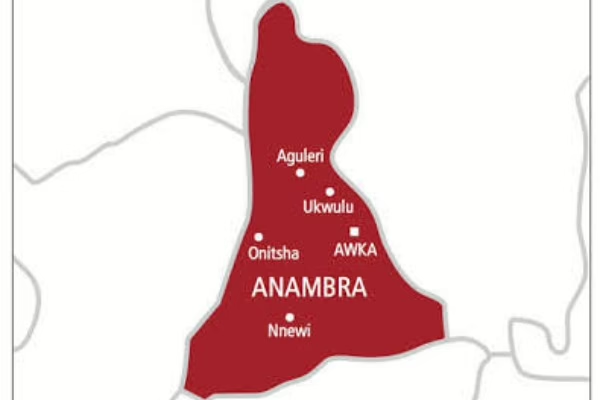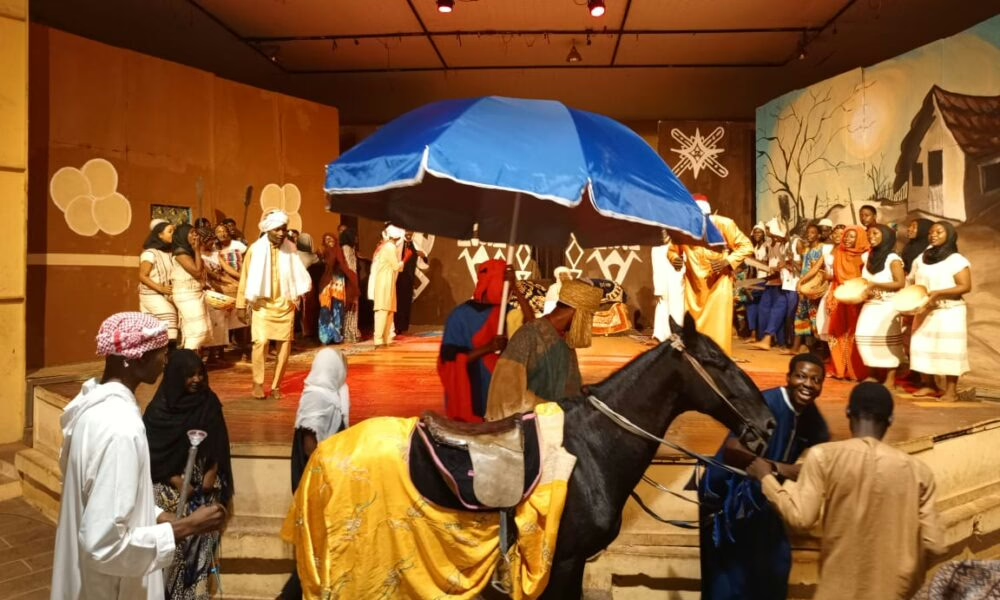Some business operators across the country have bemoaned low Christmas sales during this year’s Yuletide season.
The business operators, which include supermarket owners, traders and poultry farmers, while speaking in separate interviews with , said this year’s sales did not reflect the numbers usually recorded during Christmas celebrations.
They expressed disappointment that despite committing huge investments in expectation of bumper sales during the festive period, Nigerians had yet to embark on the usual Christmas spending spree experienced in previous years.
Findings by our correspondents also showed significant hikes in the prices of basic food items that were consumed in large quantities during the Yuletide.
Some of these items are rice, groundnut oil, chicken, beef, eggs, and onions, among others. The price of chicken increased by at least 100 per cent due to the rising cost of feed made from maize and soybean.
Speaking with , a businesswoman who deals in Ankara and other fabrics, Mrs Demilade Olayioye-Oloyede, said patronage had been unusually low during this year’s festive period.
She said, “This year, the patronage is not so good. Customers want to buy but they don’t have the money. Those who used to buy gifts for family and friends are reducing the number of fabrics that they buy as gifts.
“Customers buying, say 10 bundles of fabrics, have reduced their purchases to like five. This time last year, we had made a lot of sales but the sales are quite low now.
“Most people are just asking for the price. Sometimes, they will buy one or two, even those buying two are not many.”
Olayioye-Oloyede also lamented that due to the volatile exchange rate, she was forced to spend more to import goods which are now difficult to sell.
She added, “For Ankara, they have sent at least two new price lists within 10 days, indicating usually an increase. Around this time last year, I would have sent fabrics to Abuja and even overseas. This year, nothing of such, I’m just posting the clothes on my online store.”
A businessman operating a soft drinks depot at Bwari Area Council, Abuja, Ikechuckwu Eze said this year’s sales were a stark contrast to last year’s.
Eze stated that most of his customers complained about the high prices of commodities and the naira scarcity in Abuja. He also lamented the impact which the decreasing sales now had on his business.
“I’m experiencing low sales this time compared to last year. I remember that this time last year, many customers came to order soft drinks for celebration, but this time my shop is dry.
“Most of my usual customers can no longer afford to buy commodities as much as they did last year. Some of them complained of naira scarcity as well,” he said.
“This is usually the time we make money to invest in next year but I’m not able to raise enough money now and my business money is also tied down, no profit,” he stated.
Also speaking on the development, a rice vendor, Felix Fanen, stated that despite the festivities associated with this season, sales of staple food such as rice seem to remain the same as was experienced last year.
“I don’t see much difference in the sales of my rice this year compared to last year. I think people don’t want to spend much on festivities this time,” he said.
Similarly, an oil merchant, Temitope Salawu, expressed dissatisfaction with the low patronage of cooking oils during this year’s Christmas season
Salawu, who sells palm oil and groundnut oil at Kola market, situated in the toll gate area of Lagos State said sales declined by 60 per cent this year.
“Formerly a five-litre groundnut oil was around N4,500 to N4,800, now it is at N7,000. In a month, I sell about 100 gallons of five-litre oil, but now that we have low patronage, I had to change from a five-litre gallon to a two-litre gallon of N3000, so that people can buy.
“Last year’s Christmas, I made N100,000 daily during the Christmas period, but now I am still struggling to get N35,000 because of the low patronage,” Salawu said.
Salau asserted that because of the low patronage, he had to stop selling rice, as the cost of rice went up significantly.
He said, “Last year I sold rice in bags, at the rate of N35,000, but now rice is sold at N58,000 as of the day before yesterday, hence I had to stop the sale of rice because of the low patronage as well.”
In a telephone interview with one of our correspondents, the Chairman of the Akwa Ibom State chapter of the Poultry Association of Nigeria, Solomon Ekong, said Christmas sales were lower than usual because Nigerians have adopted a low-key approach to this year’s Christmas celebration.
He added that most farmers who invested heavily in expectation of bumper sales during the yuletide had resorted to selling their birds below market price to avoid the burden of continued feeding costs.
“Sales have been low. Workers are not being paid. I just finished discussing this with a civil defence staff member. He said they had not been paid. So, it is a very low-key festive period. We expected so much from the festive period, but it hasn’t happened the way we expected it.
“What we are doing is sell below cost. All the birds have been pushed to the market today. So, whatever we see today is going to determine what tomorrow’s price will be,” Ekong said.
On his part, the Secretary of the Lagos State branch of PAN, Olufemi Stephen said that while sales have been reflective of the numbers recorded during a typical yuletide season, profit levels have been low due to the high cost of poultry feed.
Stephen said, “Sales have been fine, although the gain is very small because the cost of feed is so high. But, people are buying. It is a must that they buy for Christmas. So, people are buying but the profit is low.”
Another poultry farmer, Femi Adisa, said the rate of patronage in the country was abysmally low and affecting businesses this season.
He said, “It is quite disheartening to observe the poor response to my poultry products. I’m strategically placed near the expressway at Ebute Road in the Ibafo area of Ogun State, targeting areas with substantial foot traffic.
“Regrettably, due to the lack of customer interest, I had to close down these stands. Consequently, my advertising efforts are now limited to reaching out to acquaintances like family and friends or those I happen to meet by chance.”
A poultry farmer, Chenemi Simon, said sales of poultry birds had decreased on her farm this year. According to her, the customers who would have patronised the business have shifted to alternatives such as beef to celebrate the season.
At Dutse market in Bwari Area Council, Abuja, it was observed that many poultry sellers had chicken packed in their vehicles in anticipation of buyers.
While some customers complained of a hike in the price of the birds, an average chicken was sold at N15,000 compared to N8,000 in the last season. The sellers justified the increase in price by stating that the cost of inputs had also increased.
A fish farmer, Mohammed Alagangan, said he recorded low patronage from fish buyers because of the high price and cash scarcity.
Also, a civil servant, Idemudia Godwin, in a telephone interview, said, “On business patronage, I am recording low because of the season. Chicken prices increased as Christmas was approaching.
“It’s as high as N15,000 now for a good size and N8,000 for a medium size. The sellers identified the high cost of feed as one of the reasons for the increase in the price of chicken. The price of clothes didn’t change much.”
On his part, the President of the Lagos Chamber of Commerce and Industry, Gabriel Idahosa, cited low spending power as the major reason why Nigerians have been unable to spend lavishly during this year’s yuletide.
According to him, some of the major economic reforms embarked on by the government have meant that many Nigerians can only spend on their immediate needs and cannot afford the buffer of disposable income.
Idahosa said, “You can only go all out to celebrate if you have money in your pocket. The disposable income at the disposal of Nigerians now, both the lower and middle class has almost reduced to zero.
“By the time you pay for food, transport, children’s school fees, you are running into debt already. They owe just to meet all those basic necessities. So this is just a reflection of the economy.”
Also speaking, an economic expert at Olabisi Onabanjo University, Prof Sheriffdeen Tella, said this year’s modest celebration was a function of the poor performance of the economy themed by high inflation, skyrocketing cost of goods and services, cash crunch, among others.
He said, “It has been low-key for some time now because the economy has not been performing. So, we should be used to the low-key style. The only thing is that this year has been worse because inflation has gone up very badly.”











